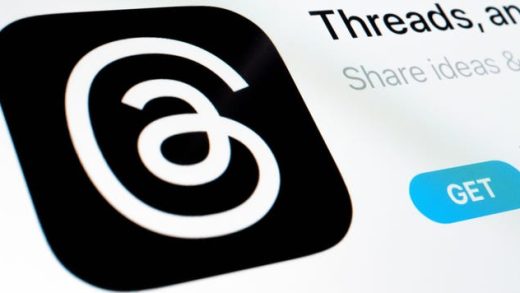This week professor David Carroll, whose dogged search for answers to how his personal data was misused plays a focal role in The Great Hack: Netflix’s documentary tackling the Facebook-Cambridge Analytica data scandal, quipped that perhaps a follow up would be more punitive for the company than the $5BN FTC fine released the same day.
The documentary — which we previewed ahead of its general release Wednesday — does an impressive job of articulating for a mainstream audience the risks for individuals and society of unregulated surveillance capitalism, despite the complexities involved in the invisible data ‘supply chain’ that feeds the beast. Most obviously by trying to make these digital social emissions visible to the viewer — as mushrooming pop-ups overlaid on shots of smartphone users going about their everyday business, largely unaware of the pervasive tracking it enables.
Facebook is unlikely to be a fan of the treatment. In its own crisis PR around the Cambridge Analytica scandal it has sought to achieve the opposite effect; making it harder to join the data-dots embedded in its ad platform by seeking to deflect blame, bury key details and bore reporters and policymakers to death with reams of irrelevant detail — in the hope they might shift their attention elsewhere.
Data protection itself isn’t a topic that naturally lends itself to glamorous thriller treatment, of course. No amount of slick editing can transform the close and careful scrutiny of political committees into seat-of-the-pants viewing for anyone not already intimately familiar with the intricacies being picked over. And yet it’s exactly such thoughtful attention to detail that democracy demands. Without it we are all, to put it proverbially, screwed.
The Great Hack shows what happens when vital detail and context are cheaply ripped away at scale, via socially sticky content delivery platforms run by tech giants that never bothered to sweat the ethical detail of how their ad targeting tools could be repurposed by malign interests to sew social discord and/or manipulate voter opinion en mass.
Or indeed used by an official candidate for high office in a democratic society that lacks legal safeguards against data misuse.
But while the documentary packs in a lot over an almost two-hour span, retelling the story of Cambridge Analytica’s role in the 2016 Trump presidential election campaign; exploring links to the UK’s Brexit leave vote; and zooming out to show a little of the wider impact of social media disinformation campaigns on various elections around the world, the viewer is left with plenty of questions. Not least the ones Carroll repeats towards the end of the film: What information had Cambridge Analytica amassed on him? Where did they get it from? What did they use it for? — apparently resigning himself to never knowing. The disgraced data firm chose declaring bankruptcy and folding back into its shell vs handing over the stolen goods and its algorithmic secrets.
There’s no doubt over the other question Carroll poses early on the film — could he delete his information? The lack of control over what’s done with people’s information is the central point around which the documentary pivots. The key warning being there’s no magical cleansing fire that can purge every digitally copied personal thing that’s put out there.
And while Carroll is shown able to tap into European data rights — purely by merit of Cambridge Analytica having processed his data in the UK — to try and get answers, the lack of control holds true in the US. Here, the absence of a legal framework to protect privacy is shown as the catalyzing fuel for the ‘great hack’ — and also shown enabling the ongoing data-free-for-all that underpins almost all ad-supported, Internet-delivered services. tl;dr: Your phone doesn’t need to listen to if it’s tracking everything else you do with it.
The film’s other obsession is the breathtaking scale of the thing. One focal moment is when we hear another central character, Cambridge Analytica’s Brittany Kaiser, dispassionately recounting how data surpassed oil in value last year — as if that’s all the explanation needed for the terrible behavior on show.
“Data’s the most valuable asset on Earth,” she monotones. The staggering value of digital stuff is thus fingered as an irresistible, manipulative force also sucking in bright minds to work at data firms like Cambridge Analytica — even at the expense of their own claimed political allegiances, in the conflicted case of Kaiser.
If knowledge is power and power corrupts, the construction can be refined further to ‘data corrupts’, is the suggestion.
The filmmakers linger long on Kaiser which can seem to humanize her — as they show what appear vulnerable or intimate moments. Yet they do this without ever entirely getting under her skin or allowing her role in the scandal to be fully resolved.
She’s often allowed to tell her narrative from behind dark glasses and a hat — which has the opposite effect on how we’re invited to perceive her. Questions about her motivations are never far away. It’s a human mystery linked to Cambridge Analytica’s money-minting algorithmic blackbox.
Nor is there any attempt by the filmmakers to mine Kaiser for answers themselves. It’s a documentary that spotlights mysteries and leaves questions hanging up there intact. From a journalist perspective that’s an inevitable frustration. Even as the story itself is much bigger than any one of its constituent parts.
It’s hard to imagine how Netflix could commission a straight up sequel to The Great Hack, given its central framing of Carroll’s data quest being combined with key moments of the Cambridge Analytica scandal. Large chunks of the film are comprised from capturing scrutiny and reactions to the story unfolding in real-time.
But in displaying the ruthlessly transactional underpinnings of social platforms where the world’s smartphone users go to kill time, unwittingly trading away their agency in the process, Netflix has really just begun to open up the defining story of our time.











